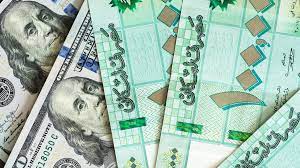Cairo, Egypt--Egypt has set an initial yield of 11.625 percent for the sale of its three-year, dollar-denominated sukuk on Tuesday as part of the country’s measures to defuse its foreign exchange crisis.
The sukuk will be of benchmark size or in the range of $500 million.
Egypt’s finance minister Mohamed Maait said in December that the country was targeting between $1.5 billion and $2.5 billion from its first sovereign sukuk.
To be listed on the London Stock Exchange, the sukuk will be issued through The Egyptian Financial Co. for Sovereign Taskeek, with the finance ministry as the obligor.
Joint lead managers and book runners on the sukuk are Abu Dhabi Islamic Bank, Citi, Credit Agricole, Emirates NBD Capital, First Abu Dhabi Bank and HSBC, the document on the deal revealed.
Also read: Cash-strapped Egypt sells state assets to Gulf nations
The cash-strapped nation also faces a $1.25 billion Eurobond repayment on Feb. 21, and a successful sukuk issue could help repay the debt.
The country will also need to mobilize funds from its global partners to close a $17 billion financing gap in the coming years, the International Monetary Fund said last month.
The Washington-based lender approved a 46-month arrangement of $3 billion under the Extended Fund Facility for the North African country to preserve macroeconomic stability, restore buffers and pave the way for inclusive and private sector growth.
The policy package supported by the EFF aims to unlock substantial additional financing from Egypt’s partners, including non-traditional financing in the form of investments.
Egypt is facing exceptional balance of payments pressures, including spillovers from the war in Ukraine. In particular, the war has led to lost tourism receipts and a higher food import bill.
It also triggered a large capital outflow amid the authorities’ stabilization of the exchange rate, which led to significant reserve losses.
Additionally, given that Egypt has already exceeded the normal access limit under the standby arrangement, access to financing under an EFF arrangement will require exceptional access.
Meanwhile, Moody’s Investors Service recently downgraded the nation’s sovereign credit rating deeper into junk territory, warning it will take time to reduce its vulnerability to external risks.








